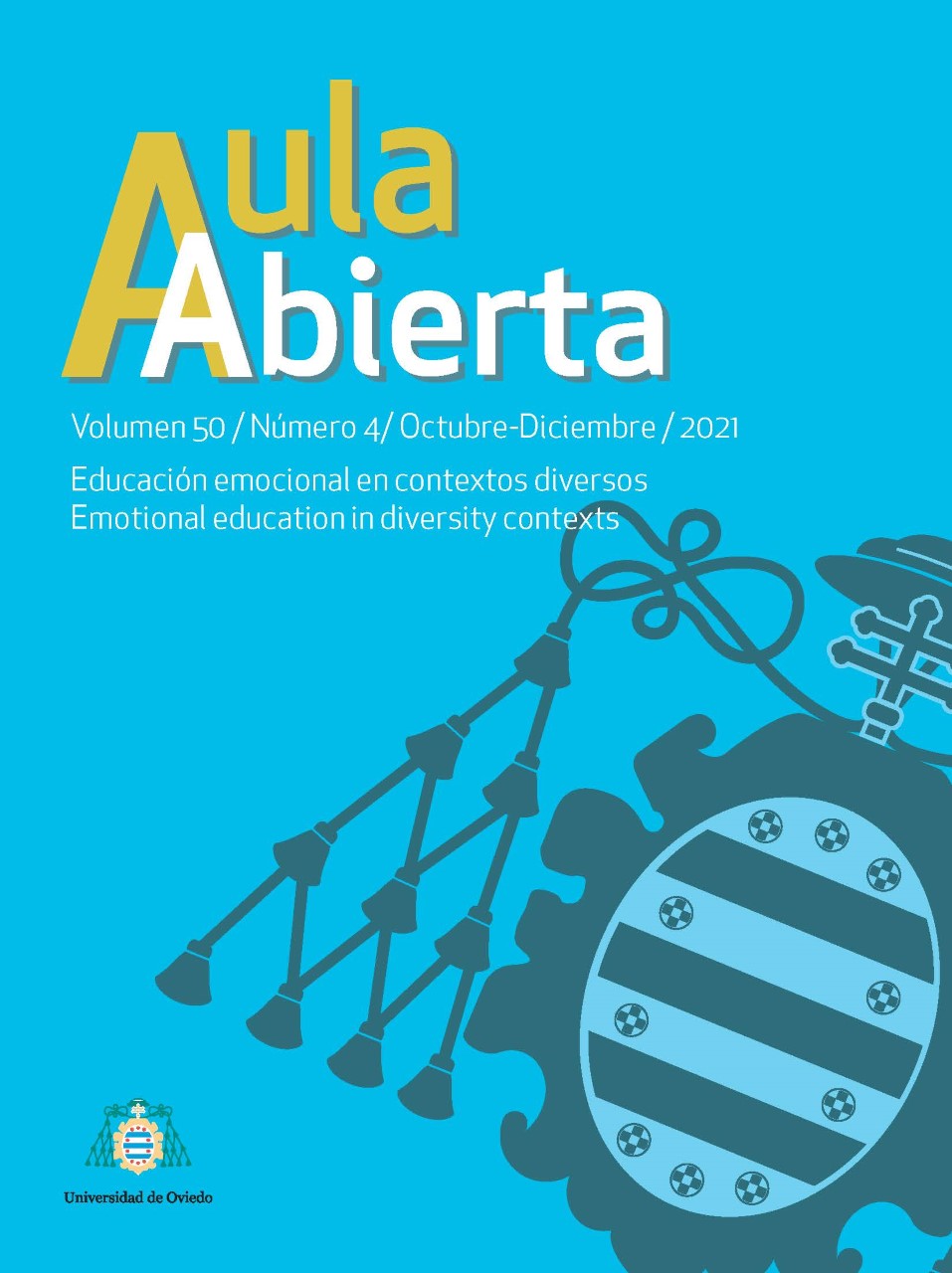Abstract
Adolescence is an important stage because of its characteristic evolutionary changes and also because of how environmental factors can influence these changes. This study is part of a broader investigation (PROMETEO-SENESCYT Project, Ecuador), it is non-experimental, the methodology is quantitative, and these analyses are cross-sectional, descriptive, correlational and inferential. An Exploratory Factor Analysis (EFA) has been carried out on the questionnaire Cómo es TU familia (CTF) (Hernández, 1996), The main objective is to identify, through the responses of a sample of Ecuadorian adolescents (12-17 years old), their perceptions about their involvement and participation in the search for social support in the face of problems, as well as their perception about family cohesion and communication (scales of the CTF questionnaire). These perceptions have been analysed according to age and gender using Student's T test for independent samples, and finally an ANOVA 1 F.E.F. Among the conclusions, and regarding emotional education, the studied scales studied are related to dimensions of socio-emotional education that involve competencies related to them. Since the purpose of these scales is that they can be applied as a tool to establish baselines of the family climate of the adolescent population, and from there design interventions in Emotional Education adjusted to the specific context of a specific population.
References
Xxxxxxx-Xxxxxxxx & Xxxxxxxx (2020). Comunicación y gestión de problemas en el ámbito familiar de adolescentes ecuatorianos (Estrategias de afrontamiento y apoyo social percibido) En Investigación en el ámbito escolar. Nuevas realidades en un acercamiento multidimensional a las variables psicológicas y educativas. 1351-1359, Dykinson. https://dialnet.unirioja.es/servlet/articulo?codigo=7744161
Bisquerra, R. (2012). De la inteligencia emocional a la educación emocional. Cómo educar las emociones, 24-35.
Bordás, C. S., & Supervía, P. U. (2017). Repercusión de las estrategias de afrontamiento de estrés en la felicidad de los alumnos de Secundaria. Revista Electrónica Interuniversitaria de Formación del Profesorado, 20(3), 65-77. https://revistas.um.es/reifop/article/view/282601
Elliott, S., & Álvarez-González, B. (2020). A multi-rater assessment of the base rates of children and adolescents’ social emotional learning skills strengths and deficits. En: Investigación en el ámbito escolar. Nuevas realidades en un acercamiento multidimensional a las variables psicológicas y educativas. 1337-1350. Dykinson. https://dialnet.unirioja.es/servlet/articulo?codigo=7744162
Garcés Jaramillo, J., Duque Álvarez, D., Cardona Ramírez, M., Romero Guzmán, F. (2014). Inteligencia emocional y estilos de afrontamiento de jóvenes infractores entre 15 y 19 años de edad del Municipio de Envigado durante el año 2013. Psicoespacios, 8(13), 32-52, Disponible en http://revistas.iue.edu.co/index.php/Psicoespacios
González Arratia L. F., (2011). Resiliencia y Personalidad en niños y adolescentes. Cómo desarrollarse en tiempos de crisis. Universidad Autónoma de México.
González-Cárdenas, F. D., Narváez-Zurita, C. I., Guerra-Coronel, M. A. & Erazo-Álvarez, J. C. (2020). Protección para niños, niñas y adolescentes: La protección integral prevista en la Constitución ecuatoriana. Iustitia Socialis. Revista Arbitrada de Ciencias Jurídicas. 5(1), 397-414. http://dx.doi.org/10.35381/racji.v5i1.619
Hair, J., Anderson, R., Tatham, R. y Black, W. (1999). Análisis multivariante. Madrid: Prentice Hall
Hernández C. A. (1996). Familia y Adolescencia: Manual de aplicación de instrumentos. Washington D.C. Ed. Fundación W.K. Kellogg.
Lazarus, R. S., & Folkman, S. (1984). Stress, appraisal, and coping. NY, Springer. doi: 10.1007/978-1- 4419-1005-9_215
McCubbin HI, Patterson JM, Wilson L. (1981). Family Inventory of Life Events and Changes (FILE), form A. St. Paul, MN: University of Minnesota.
Musitu, G; Martinez, B. & Murgui, S. (2006). Conflicto marital, apoyo parental y ajuste escolar en adolescentes. Anuario de Psicología, 37(3), 249-261. https://raco.cat/index.php/AnuarioPsicologia/article/view/61840
Olson, D.H.; McCubbin, H.I.; Barnes, H.; Larsen, A.; Muxen, M. & Wilson, M. (Eds.) (1982). Family inventories: Inventories used in a national survey of families across the family life cycle. Ed. St. Paul, MN; University of Minnesota.
Pérez Escoda, N., & Filella Guiu, G. (2019). Educación emocional para el desarrollo de competencias emocionales en niños y adolescentes. Praxis & Saber,10(24), 23-44. https://revistas.uptc.edu.co/index.php/praxis_saber/article/view/8941/8389
Salovey, P., Bedell, B.T., Detweiler, J.B., y Mayer, J.D. (2000). Current directions in emotional intelligence research. En M. Lewis y J.M. Haviland (Eds.), Handbook of emotions (2nd ed. 504-520). New York: Guilford Press.
Sierra, J. O. (2014). Adolescencia: Evaluación del ajuste emocional y comportamental en el contexto escolar (tesis doctoral). Universidad de La Rioja, La Rioja, España.
Valiente, C., Árguedas-Morales, M., Marcos, R. & Vicente, Martínez-Vicente, M. (2020). Fortaleza psicológica adolescente: relación con la inteligencia emocional y los valores. Aula Abierta, 49(4), 385-394.
VV.AA. (2020). Guía Juntos aprendemos y nos cuidamos. Plan Educativo Sección 5: Socioemocional. https://educacion.gob.ec/wp-content/uploads/downloads/2020/09/Seccion-5_Socioemocional.pdf

This work is licensed under a Creative Commons Attribution-NonCommercial-NoDerivatives 4.0 International License.
Copyright (c) 2021 Aula Abierta






